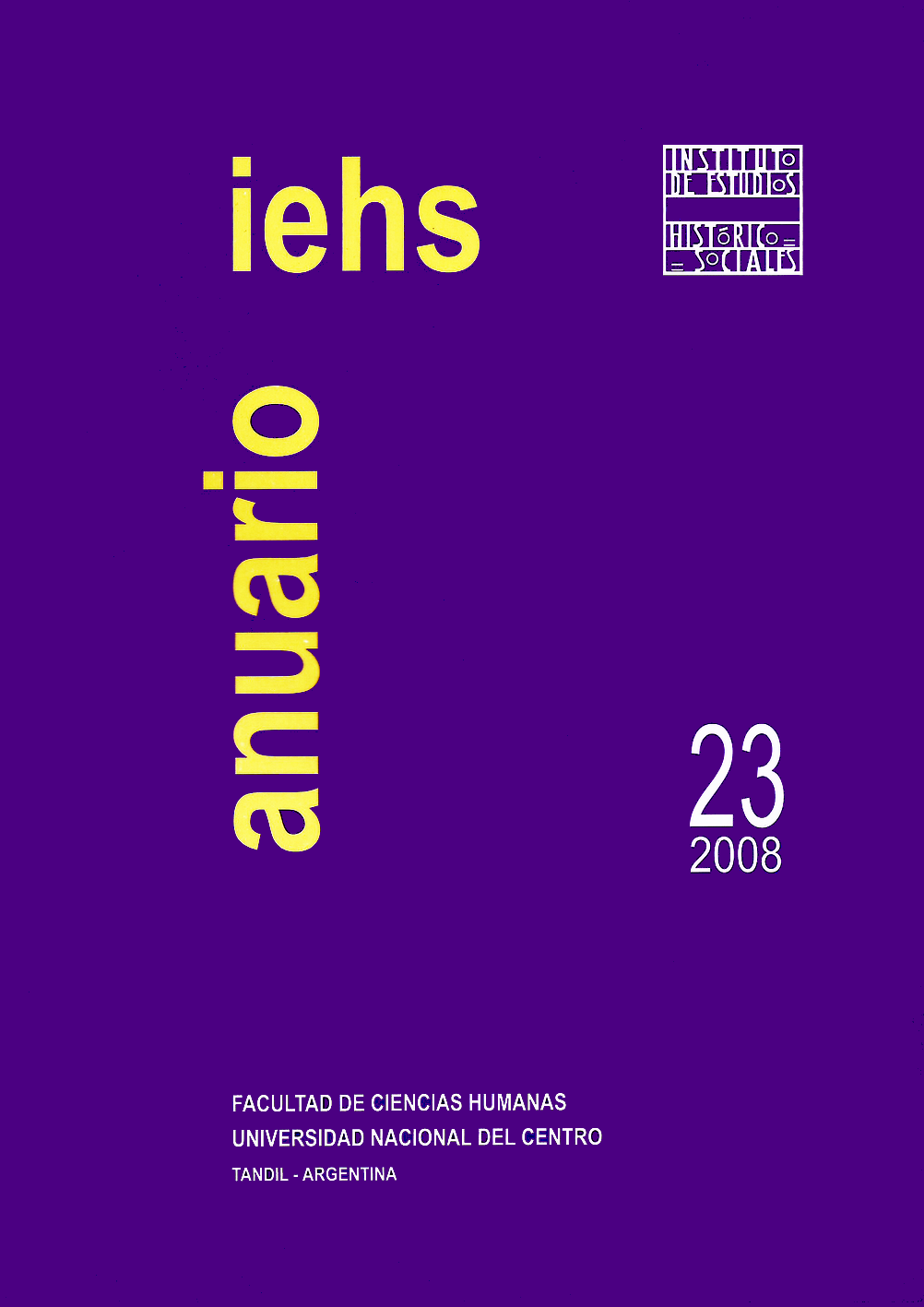Juicio, condena y ejecución de Francisco Acosta, “consentidor de ladrones”. Alcances y límites del poder de los comandantes de campaña en Tucumán a mediados del siglo XIX
Keywords:
Campaign Commander, Civil Power, Military Power, Legal Power, Loyalty, Tucumán, Mid-19th CenturyAbstract
This work deals with an issue that is framed within the debate regarding transitional modalities between the colonial and republican orders in Latin America. In this context, wondering about the figure of the Campaign Commander –a new political and military actor that resulted from revolutionary times–, calls for the need to analyze how the new powers were constituted and how relationships of loyalty and reciprocity were designed among political-military leaders themselves and between them and the rural population. In this regard, the decade of 1840 in Tucumán is highly significant since Celedonio Gutierrez‟ government (1842-1852) was characterized by its reinforcement of the prerogatives of Department Commanders, thus achieving the centralization of military power, ensuring their loyalty to him and to the “federal cause”. In this context, the trial and sentence of Commander Francisco Acosta in 1850, accused of “being a consuetudinary thief”, a “protector of rascals”, “disobeying of authority”, “being a swindler and a murderer”, offers plenty material to dig deeper into the erosion of the system of diverging loyalties on which the governor‟s and the department commander‟s power was upheld. The reason behind the analysis of this record is to reconstruct the functioning and articulation of the three areas of power (political, military and legal) at a departmental level; to identify the real limits of the commanders‟ attributions; to recognize counter interests that underlay in the defense and sentence of the accused and, finally, to identify the different perceptions that the actors involved (government, military chiefs, judges, the accused, his friends and enemies) had in the face of Acosta‟s trial process and execution.
References
.
Downloads
Published
Issue
Section
License
Copyright (c) 2024 Anuario IEHS

This work is licensed under a Creative Commons Attribution-NonCommercial 4.0 International License.



